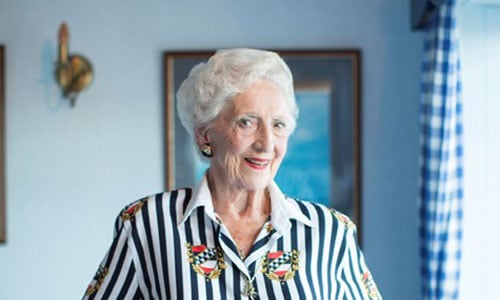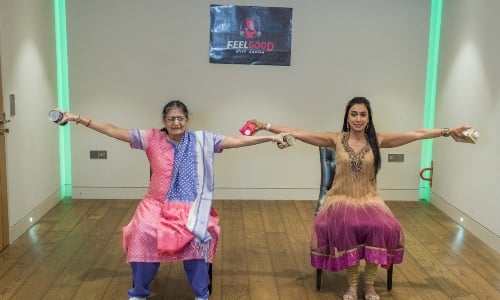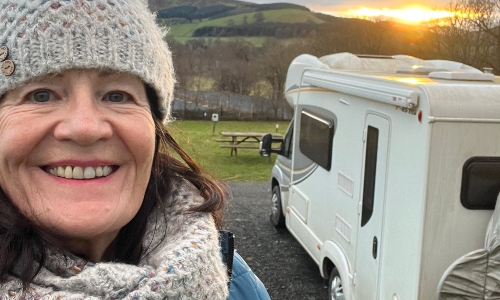“I had to have a stern conservation with the grass this morning,” says Philippa Forrester, speaking to Age UK from the orange-hued office in her rural home.
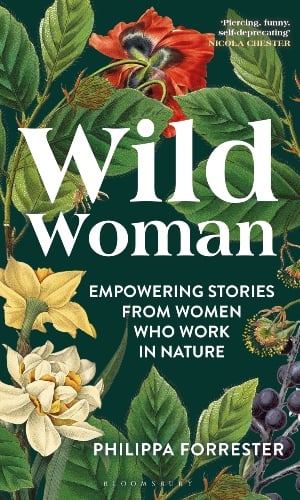 “The belt on my mower keeps falling off, and my grass doesn’t seem to have got the memo that it needs to stop growing while I fix it!” she laughs. “It’s such a condition of human arrogance, isn’t it – our battle to tame nature into something we want it to be.”
“The belt on my mower keeps falling off, and my grass doesn’t seem to have got the memo that it needs to stop growing while I fix it!” she laughs. “It’s such a condition of human arrogance, isn’t it – our battle to tame nature into something we want it to be.”
Embracing nature is much more Philippa’s scene. After spending the early part of her broadcasting career presenting much-loved TV shows like Tomorrow’s World and Robot Wars, in more recent years Philippa has focused on projects that reflect her lifelong passion for the wild. It’s a love that’s taken her to some of the most remote landscapes in the world as a wildlife expert and presenter, and influenced her family’s 6-year relocation to Wyoming, USA.
Now, Philippa has written Wild Woman, a book that details some of her own experiences with the wilderness, sharing stories about other women who work in the great outdoors and exploring the lessons that nature can teach us at any age.
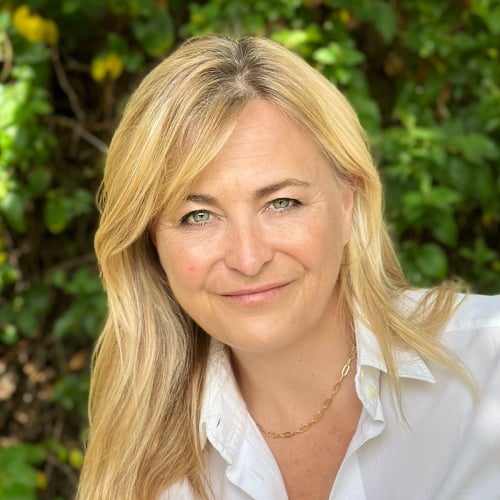
There are proven biological benefits to being in nature... We know that blood pressure can be reduced by a walk in the woods.
Connecting with nature
In Wild Woman, Philippa writes candidly about the challenges she faced in the lead-up to writing the book: from family bereavements to the end of her marriage, which brought her back to the UK. “I very much felt that I couldn’t ask these amazing women to be open about their stories if I wasn’t going to be open myself,” she reveals. “It was the right time to open up about the grief I was feeling.”
But throughout the personal anecdotes, it’s often the area of land that Philippa calls home which takes centre stage. “Rediscovering my own patch of nature was the tool that made me feel better, and documenting that helped. I’d really noticed that my healing was coming from going outside and being in nature: sometimes doing things like gardening, but often just observing.”
What’s more, Philippa’s clear that being outdoors can have a positive effect on everyone, through each of life’s stages: “There are proven biological benefits to being in nature. We know that soil on our hands makes a difference to how we feel. We know that blood pressure can be reduced by a walk in the woods. Even just being among trees can make us feel less depressed.
“This idea doesn’t have a research project to back it up, but I also think we come alive in a different way when we’re out in nature. We evolved to be out there, not in these boxes we’ve created, and I think our senses recognise that on some level. Lockdown showed that when we go outside, we feel better – even if we don’t always necessarily know why.”

Is there an evolutionary advantage to menopause? Because I always thought there wasn’t. But [orca groups] rely on the older matriarch for her experience and knowledge.
Powerful matriarchs
In addition to Philippa’s stories about how nature has helped her, the book features plenty of tales of brave, pioneering women from the past and present who have thrived in the wilderness. What was the inspiration behind focusing on these fellow wild women?
“The more I started to look into that subject, the more I realised that not many people have actually done this work,” Philippa explains. “In evolutionary science, it’s mostly been looked at from a male perspective – what were the men doing, and what was their biology? So, I started wondering if there was a difference for women, and why.”
Through exploring the connection between biology and nature, Philippa examined the menopause and the impact it can have on those who experience it – not just in humankind, but in the animal kingdom too.
“Is there an evolutionary advantage to menopause? Because I always thought there wasn’t,” she laughs. “But orcas have a menopause too. They continue to live in family units – they don’t get abandoned because they’re old. In fact, they’re valued and revered because they’ve experienced so much. Not every year is the same, even under the sea. Hunting may have to shift to a different pattern, prey may have moved, currents may have changed. They rely on the older matriarch for her experience and knowledge.
“But we’ve lost, I think, a respect for the older generation that gives us the time and space to just sit and listen, which is what we need to do. I think that value needs to be passed down as much as we can, but there’s often a sense of isolation. So it’s important to keep communication open. We move around the world much more than we used to; I’ve spent many years living much further away from my mum than she would have from hers. So that sense of community is different but no less important, and I think that's what constantly needs to be awakened.”

We’ve lost, I think, a respect for the older generation that gives us the time and space to just sit and listen.
Inspiring new generations
When considering that careers in the wilderness have historically been dominated by men, what does Philippa hope women of all ages will get from reading the book?
“First and foremost, entertainment! Secondly, coming away with stories about women that you wouldn’t have known about before, and what their lives have been like, which might make you think about the women around you.
“There are many more women in the field, out there doing research, than there were. Barriers are falling, but they’re falling too slowly. I think we need to open those doors for young women in particular and make it clear that being outside is viable as a job and as a passion.
“And lastly, what impact do these stories of wild women have on you? Do you understand yourself in a different way? Can you reach for nature as a wellbeing tool, or can you give something back to the natural world? Hopefully the book will deepen that connection.”
Wild Woman is out now via Bloomsbury.




